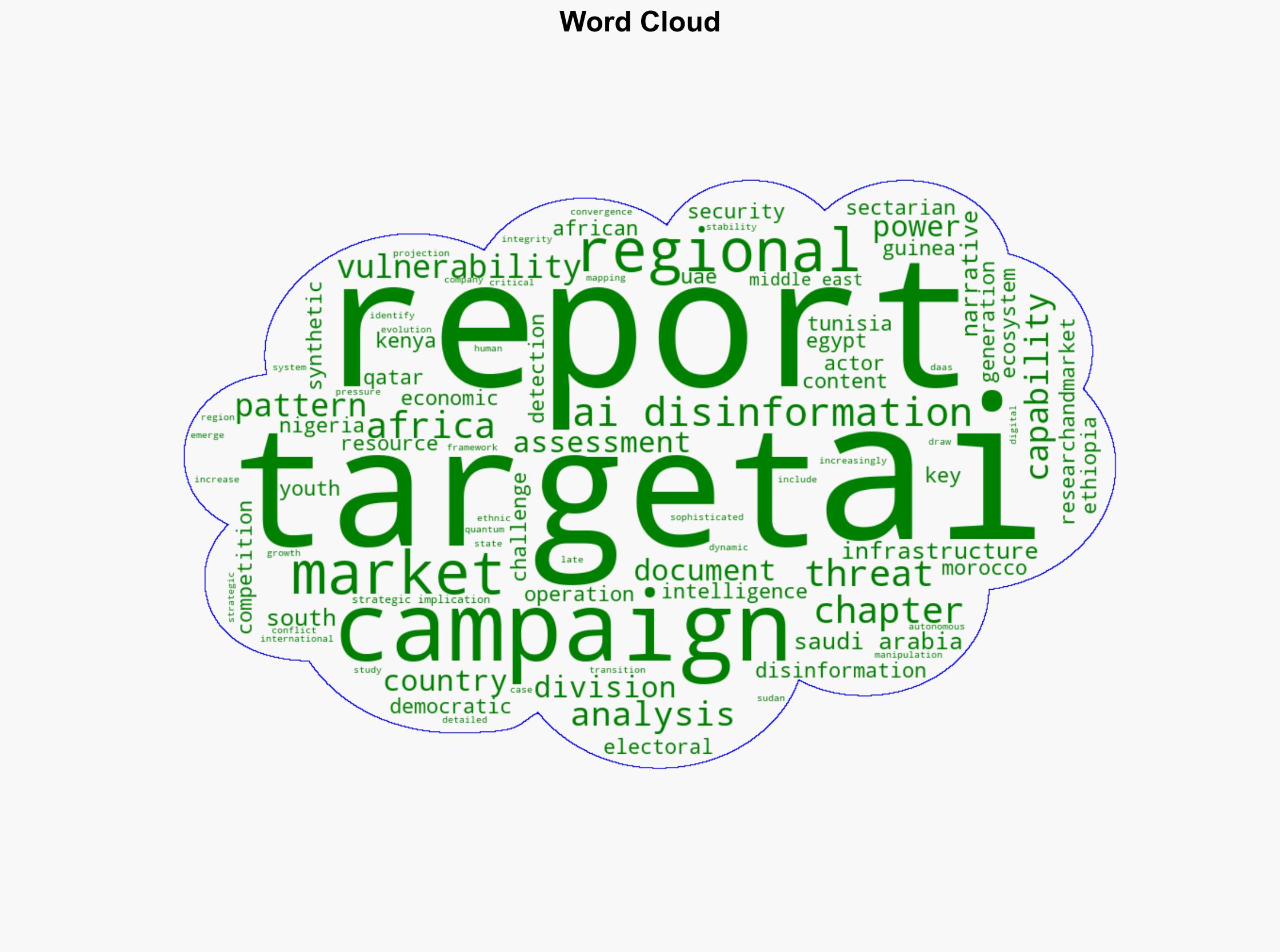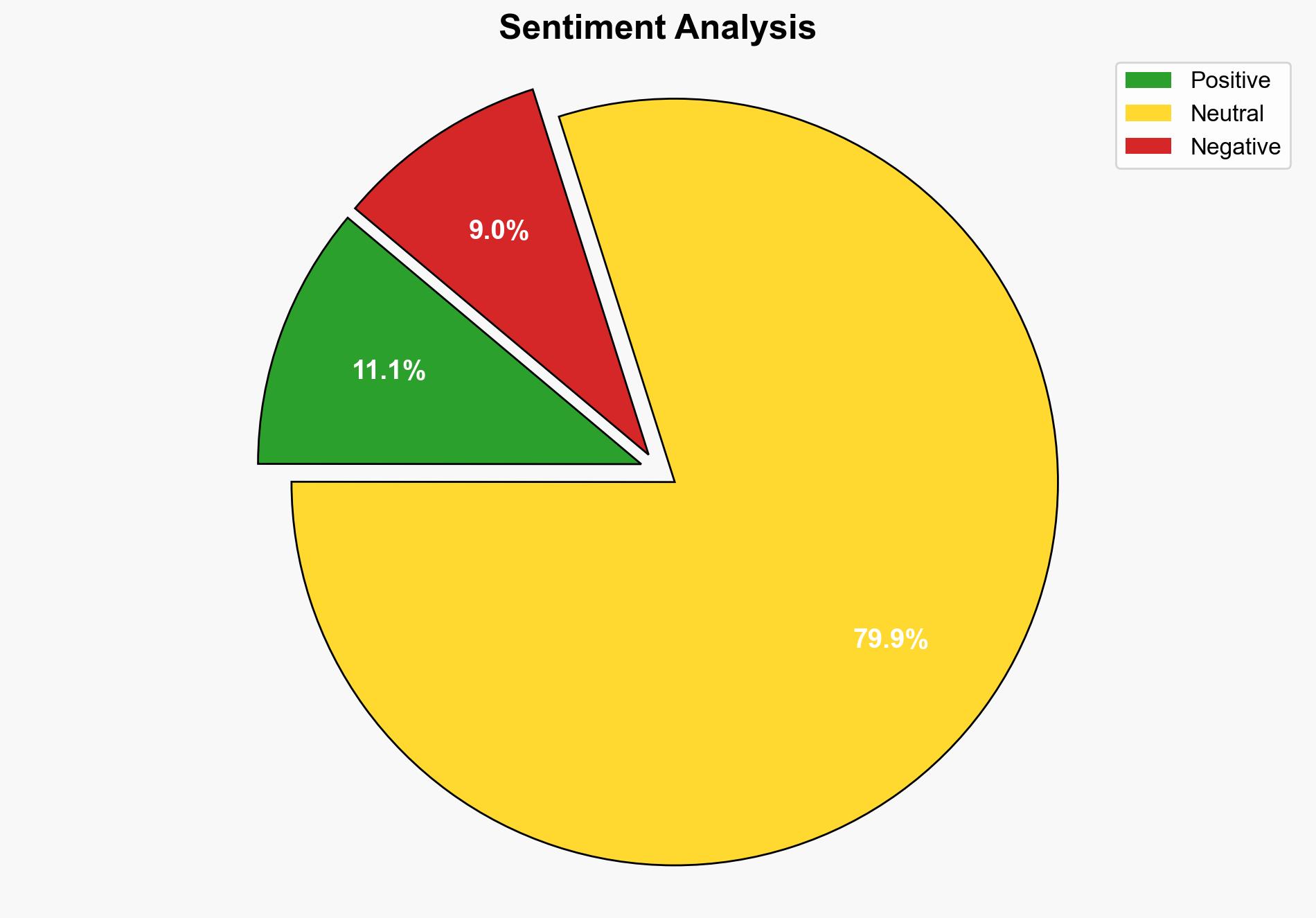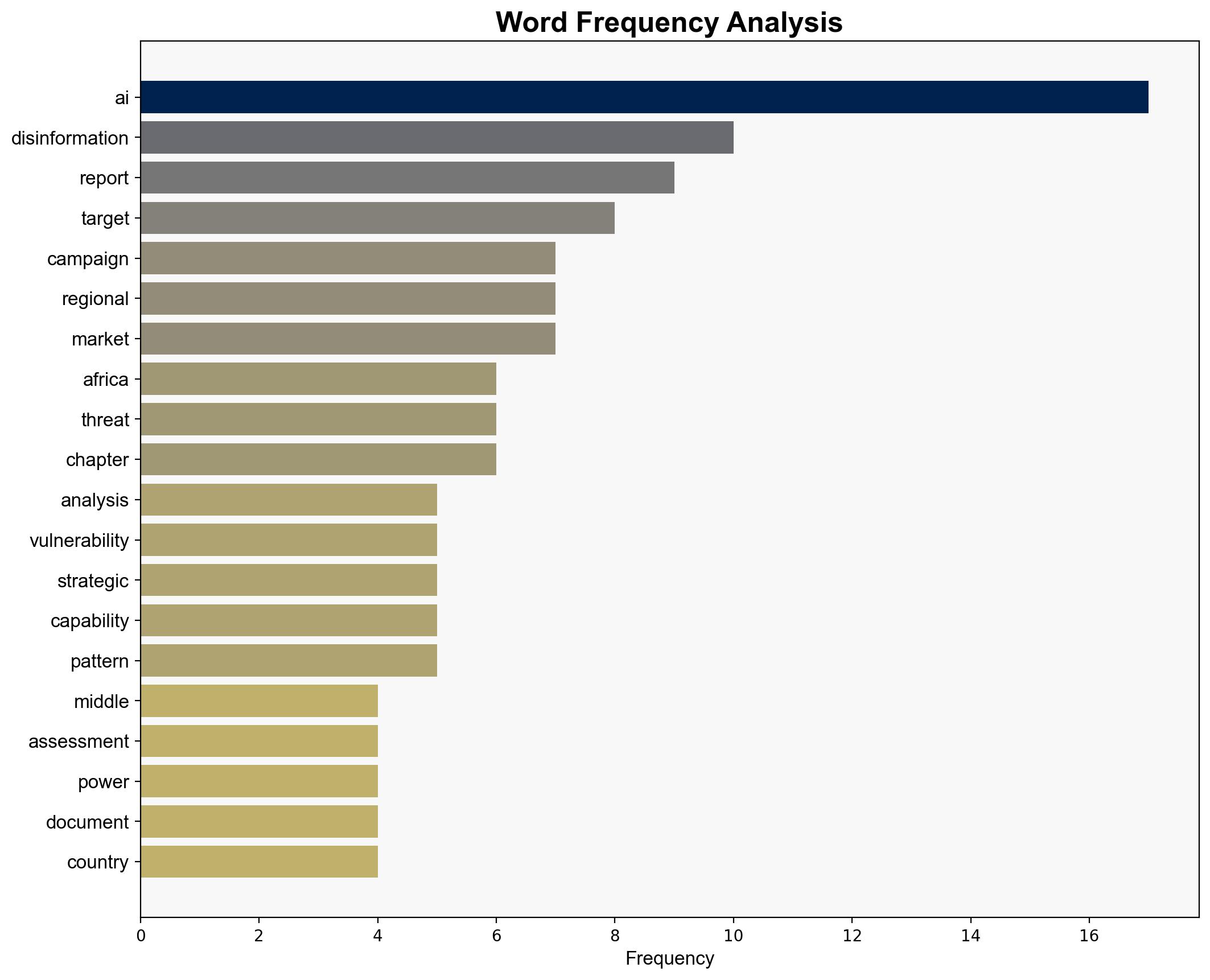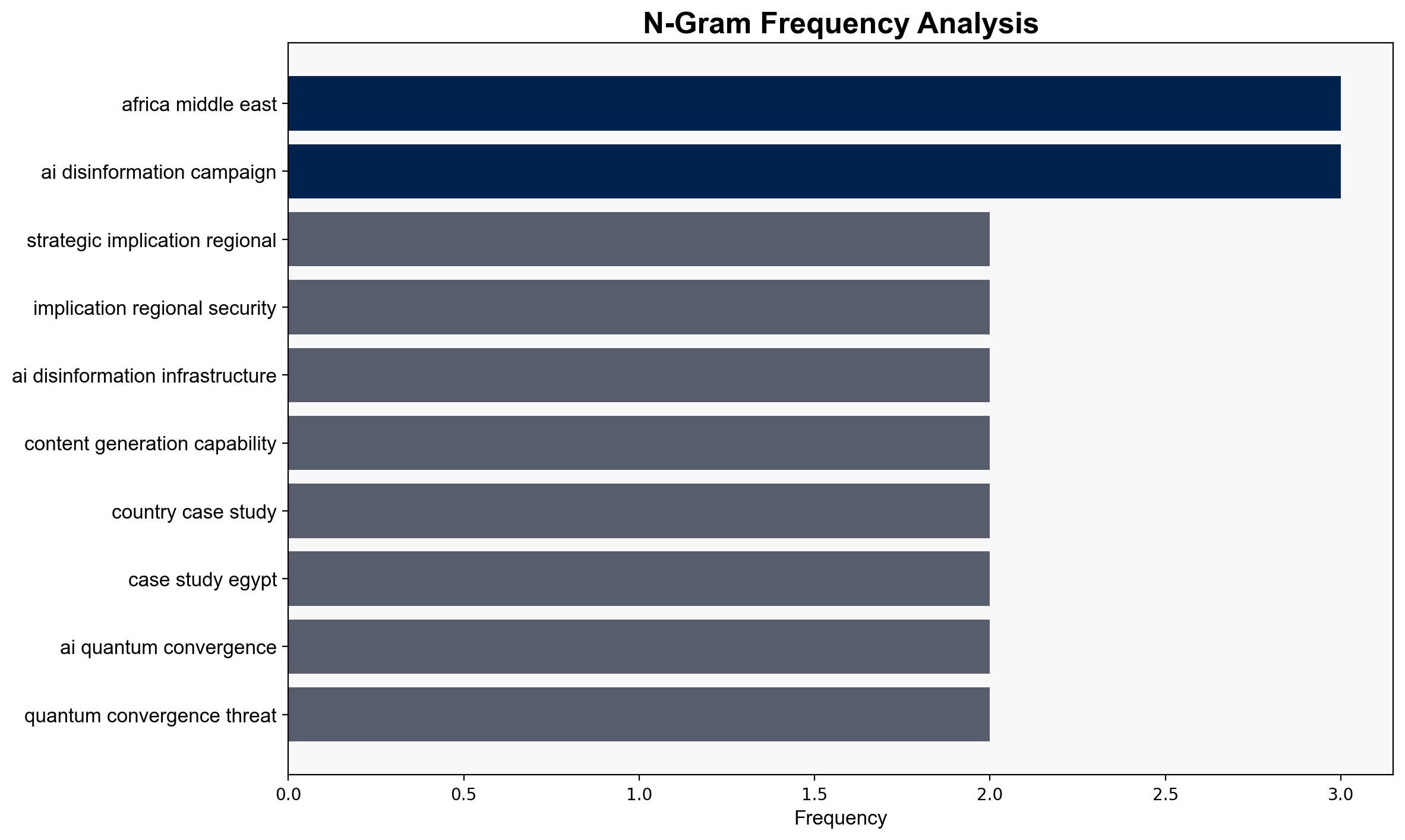AI Disinformation Security Threats from Africa Middle East 2025-2026 Analysis of 189 Documented Campaigns Across 39 African Countries and 15 Middle Eastern Nations – GlobeNewswire
Published on: 2025-10-10
Intelligence Report: AI Disinformation Security Threats from Africa Middle East 2025-2026 Analysis of 189 Documented Campaigns Across 39 African Countries and 15 Middle Eastern Nations – GlobeNewswire
1. BLUF (Bottom Line Up Front)
The most supported hypothesis is that state-sponsored AI disinformation campaigns will significantly undermine regional stability in Africa and the Middle East by targeting electoral processes and exploiting sectarian divisions. Confidence Level: High. Recommended action includes enhancing regional cooperation in cybersecurity, increasing investment in AI detection technologies, and fostering public awareness campaigns.
2. Competing Hypotheses
Hypothesis 1: State-sponsored AI disinformation campaigns, primarily orchestrated by Russia, China, UAE, and Saudi Arabia, will escalate, targeting electoral processes and exploiting sectarian divisions, thereby destabilizing regional governance and social cohesion.
Hypothesis 2: While state-sponsored disinformation campaigns are increasing, regional actors will develop effective countermeasures, minimizing the impact on governance and social stability.
Using ACH 2.0, Hypothesis 1 is better supported due to documented evidence of increasing campaign sophistication and the widening gap between AI-generated content and detection capabilities.
3. Key Assumptions and Red Flags
– Assumption: State actors have the capability and intent to deploy sophisticated AI disinformation campaigns.
– Red Flag: Potential underestimation of regional countermeasures and resilience.
– Blind Spot: Limited insight into the effectiveness of regional regulatory frameworks and their adaptability to emerging threats.
4. Implications and Strategic Risks
The proliferation of AI disinformation campaigns poses significant risks to electoral integrity, potentially leading to contested election results and civil unrest. Economic implications include market manipulation and resource competition. Geopolitically, increased tensions may arise from perceived foreign interference. The psychological impact includes heightened sectarian tensions and radicalization.
5. Recommendations and Outlook
- Enhance regional cybersecurity collaboration and intelligence sharing.
- Invest in AI detection and counter-disinformation technologies.
- Implement public awareness campaigns to increase resilience against disinformation.
- Best Case: Effective countermeasures reduce disinformation impact, stabilizing governance.
- Worst Case: Unchecked disinformation leads to widespread instability and conflict.
- Most Likely: Continued disinformation campaigns with moderate impact due to partial countermeasures.
6. Key Individuals and Entities
– No specific individuals are named in the source text.
7. Thematic Tags
national security threats, cybersecurity, counter-terrorism, regional focus




